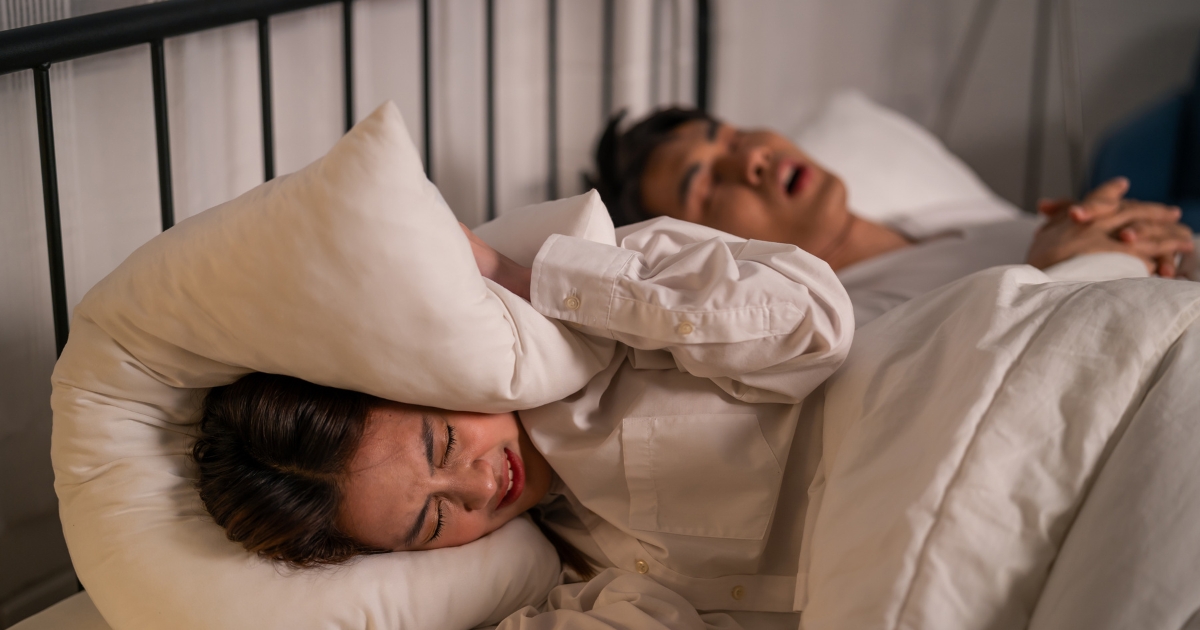3022 E 57th Ave #10 Spokane, WA 99223

Sleep apnea is a common yet often overlooked condition affecting millions worldwide. Understanding its symptoms and risk factors is crucial for early detection and effective treatment. This blog explores what sleep apnea is, its top symptoms, and who is most at risk. By being informed, you can take proactive steps toward better sleep health.
What Is Sleep Apnea?
Sleep apnea is a disorder that causes repeated interruptions in breathing during sleep. These interruptions can occur multiple times during sleep and last a few seconds to minutes. The most common type is obstructive sleep apnea (OSA), caused by an airway blockage. Another type, central sleep apnea, occurs when the brain fails to signal the muscles to breathe.
Recognizing sleep apnea is essential because it can lead to serious health issues, including heart disease, diabetes, and stroke. If you suspect you may have this condition, consult a healthcare professional.
Top Symptoms of Sleep Apnea
- Loud Snoring
One of the most recognizable symptoms is loud snoring, which can disrupt your sleep and your partner’s. If your snoring is accompanied by gasping or choking sounds, this may indicate a more severe problem. - Excessive Daytime Sleepiness
This is a significant warning sign if you feel exhausted during the day despite a whole night’s sleep. Daytime drowsiness can affect your work performance and overall quality of life. - Morning Headaches
Frequent headaches upon waking can result from oxygen deprivation during sleep. If you regularly experience these headaches, it’s time to evaluate your sleep health. - Difficulty Concentrating
Sleep apnea can lead to cognitive issues, making it challenging to focus on tasks. This symptom often goes unnoticed but can significantly impact daily activities. - Mood Changes
Individuals with sleep apnea may experience mood swings, irritability, or depression. Poor sleep quality affects emotional well-being, making it vital to address sleep issues. - Dry Mouth or Sore Throat
Waking up with a dry mouth or sore throat may indicate that you breathe through your mouth at night, often a sign of obstructive sleep apnea.
Risk Factors for Sleep Apnea
Knowing the risk factors associated with sleep apnea can help you identify if you are at higher risk. The possible reasons behind this condition are:
- Obesity
Excess weight, especially around the neck, increases the likelihood of airway blockage. Studies show that individuals with a body mass index (BMI) over 30 are more likely to develop sleep apnea. - Age
Sleep apnea can occur at any age but is more prevalent in middle-aged individuals. As you age, the muscles in your throat weaken, increasing the risk. - Gender
Men are more likely to develop sleep apnea than women. However, the risk increases for women after menopause, likely due to hormonal changes. - Family History
A family history of sleep apnea increases your risk. Genetic factors can contribute to structural abnormalities in the airway. - Smoking and Alcohol Use
Smoking and excessive alcohol consumption can relax the throat muscles, leading to airway blockages. Quitting smoking and moderating alcohol intake can significantly reduce risk. - Nasal Congestion
Chronic nasal congestion due to allergies or structural issues can contribute to sleep apnea. If you frequently struggle with nasal blockages, it’s essential to seek sleep apnea treatment in Spokane.
Complications Associated with Untreated Sleep Apnea
Ignoring sleep apnea can lead to several health complications. Individuals with untreated sleep apnea are at a higher risk for:
- Cardiovascular Problems
Sleep apnea can increase blood pressure and strain the heart. It is also linked to heart arrhythmias and heart attacks. - Type 2 Diabetes
There is a strong connection between sleep apnea and insulin resistance, increasing the risk of developing type 2 diabetes. - Liver Issues
Studies show that people with sleep apnea may have a higher prevalence of fatty liver disease. - Impaired Immune Function
Poor sleep can weaken the immune system, making you more susceptible to infections.
Diagnosis of Sleep Apnea
If you suspect you have sleep apnea, a healthcare provider can thoroughly evaluate it. This typically involves:
- Sleep Studies
A polysomnography (sleep study) monitors various body functions during sleep. This test helps diagnose the severity of sleep apnea. - Home Sleep Apnea Testing
For some, a home-based sleep test may be recommended. This option needs to be more comprehensive but can still provide valuable insights. - Physical Examination
A thorough physical exam can identify structural issues contributing to sleep apnea, such as enlarged tonsils or a deviated septum.
The Best Treatment Options for Sleep Apnea
If diagnosed with sleep apnea, the treatment method depends on the severity of the condition and underlying causes:
- Lifestyle Changes
Weight loss, quitting smoking, and avoiding alcohol can significantly reduce symptoms for many individuals. - Continuous Positive Airway Pressure (CPAP) Therapy
A CPAP machine delivers air through a mask, keeping the airway open during sleep. - Oral Appliances
Dental devices can help keep the airway open by repositioning the jaw. These are particularly useful for mild to moderate cases.
Sleep apnea is a serious condition that warrants attention. If you experience any of the symptoms mentioned, consider seeking medical advice from a licensed specialist in Spokane. Recognizing the risk factors and symptoms can lead to timely intervention, improving your overall quality of life. Prioritize your sleep health and take the first step toward better rest today. Remember, effective sleep apnea treatment is not just about better sleep; it’s about enhancing your overall well-being.
Welcome to Our Practice
Schedule Your
Visit Now!
Map
